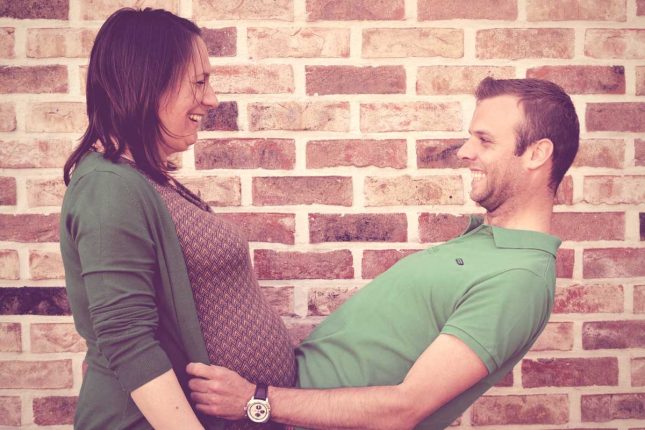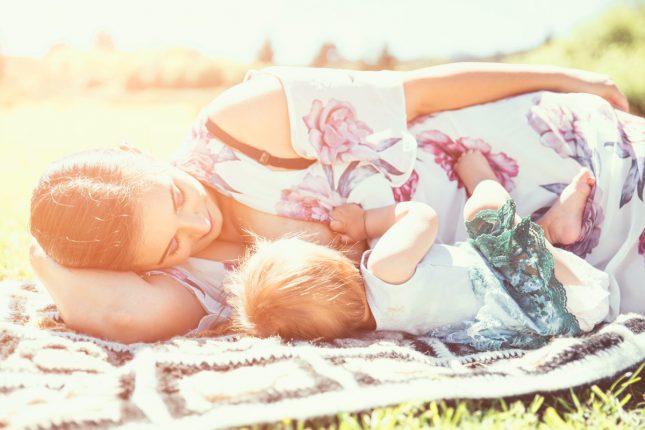More people are leaving starting a family to later in life. In fact, the average age for a first pregnancy in New Zealand is 30 – which is the highest in the world! Find out all you need to know about getting pregnant in your 30s and beyond.
Getting Pregnant in your 30s and beyond
It is true that we spend most of our 20s trying not to get pregnant! Perhaps it’s because we’ve not met the right man, or we want to travel, study or concentrate on building our careers, and having a baby would certainly put the kibosh on most of that!
But when it comes to the time when we’ve settled down, met the man of our dreams, and that biological clock is not just ticking, but the alarm bells are ringing, we often find ourselves in our 30s, wondering if we’ve left it too late.
Fertility rates after the age of 30
And what happens if we don’t get pregnant as quickly as we hoped for? Certainly by the time we hit 30, our fertility rates will have declined significantly from when we were 20.
The following chart of the fertility-age link is a commonly-cited estimate of the likelihood of conception where both partners in a couple are the same age, after one year of unprotected intercourse:
- Age 20: 90 percent
- Age 30: 70 percent
- Age 35: 55 percent
- Age 40: 45 percent
- Age 45: 6 percent
This of course doesn’t take into account any potential fertility challenges, such as endometriosis, PCOS, sperm abnormalities and the myriad of other things that can go wrong in the process of human reproduction.
Taking these potential issues into account, these percentages are likely to be even lower. But, despite all this, lots of women in their 30s and 40s are still having babies naturally.
Pregnancy is a miracle– it truly is! The number of things that have to happen to achieve a conception are, quite frankly, amazing.
The problem is that when you’re in your mid 30s and beyond we see statistics like those conception rates above, and are led to believe it’s nigh on impossible to conceive. This, of course, is untrue but we do need to educate ourselves about our fertility.
Getting pregnant in your 30s – It’s all about your menstrual cycles

I’ve had several challenges with my fertility in the past including an ectopic pregnancy in my teens, resulting in the removal of a fallopian tube, endometriosis, and a history of ovarian cysts. Then there was the good old problem of a lack of a decent bloke who wanted to have babies with me!
All of which contributed to me being 36 years of age and childless! I’d finally met the man of my dreams, but was time running out for me?
In my quest for a child I turned to the internet, and whilst bombarded by those darned statistics telling me to get a move on, I also came across some amazing stories from women with fertility issues like myself. These women were turning to interesting things like acupuncture and Chinese medicine. So I went investigating… surely this could be something to try?
It was then that I met my lovely acupuncturist, Lisa and my whole life changed. Lisa was (and continues to be) amazing. She sat and listened to me and treated me both with acupuncture and herbs… but for me, most importantly, she taught me about my fertility and how to chart my menstrual cycles. Why did I not know how to do this before? Why aren’t we taught this stuff during sex education in school?
It was through charting and timing intercourse correctly (and getting rid of the negative mindset I’d carried around with me since I had my ectopic) that I was delighted to fall pregnant in just 8 months of ‘trying’.
And with my ‘issues’, this was incredible! So there I was 36 years old and I had a viable pregnancy. I was finally going to be a Mum!
Getting pregnant later on in life may not be as easy as it would have been in your 20s, that’s true. But it’s certainly not impossible. The most important thing is to educate yourself about your fertility, know when you’re ovulating, and time intercourse appropriately
You should also know about what supplements to take, what exercise to do, and what foods are best for both of you and what not to do (smoking, alcohol, stress, spa baths for the boys etc). There are a myriad of things you can do to improve your fertility with a change of lifestyle.
It was through my experience with conception and fertility challenges that I decided to retrain to become a Natural Fertility Practitioner. I knew if I could conceive against all odds just by being more fertility aware, changing some things in my life and becoming healthier, I could certainly help others to do the same!
For more expert advice, check out our Pregnancy section.






Txt me on 0275126626
[…] Ectopic Pregnancy – Among the Complications Of PregnancyGetting Pregnant in your 30s and beyond – Kiwi Families […]
Thanks for the post, Jo. I’m from VARTA, an organisation that is part of the Fertility Coalition – we’re running a campaign called Your Fertility. Your readers might also be interested in looking at the website http://www.yourfertility.org.au which has lots of information about the main factors that affect people’s ability to conceive and have healthy babies. We’ve just released a fun animated video about the connection between weight and fertility.